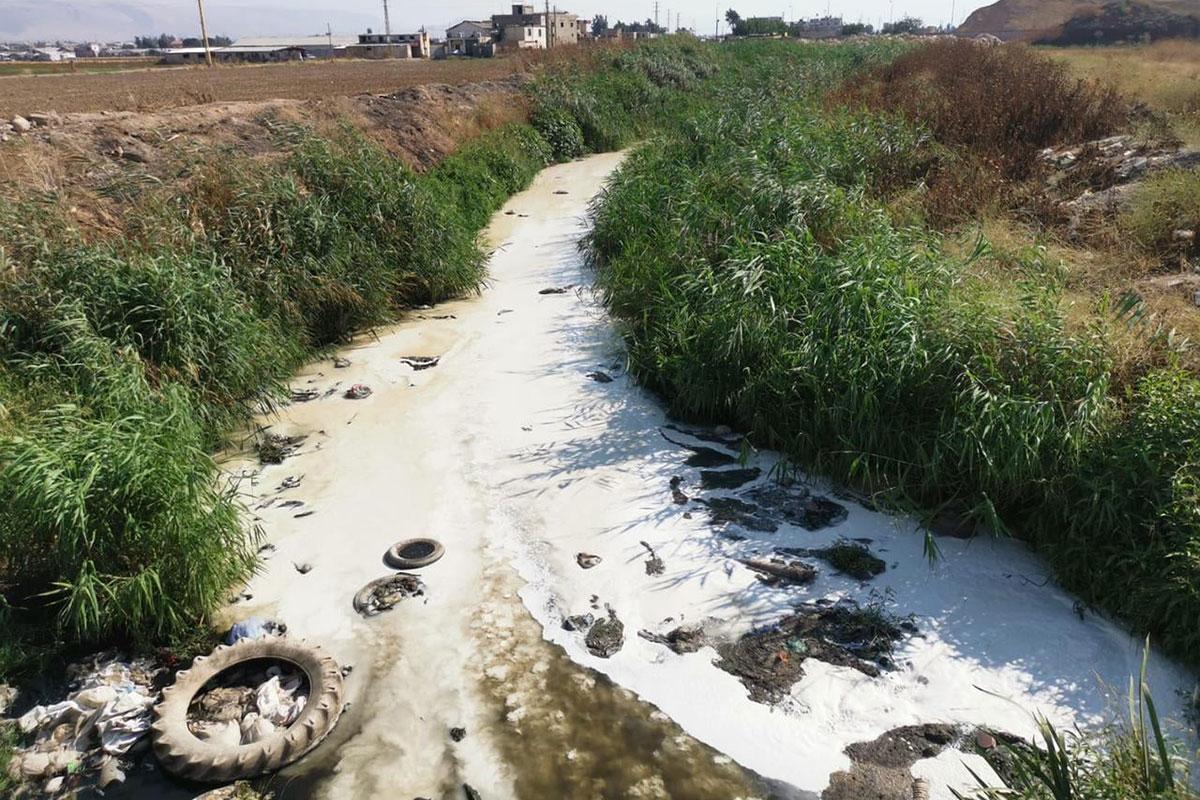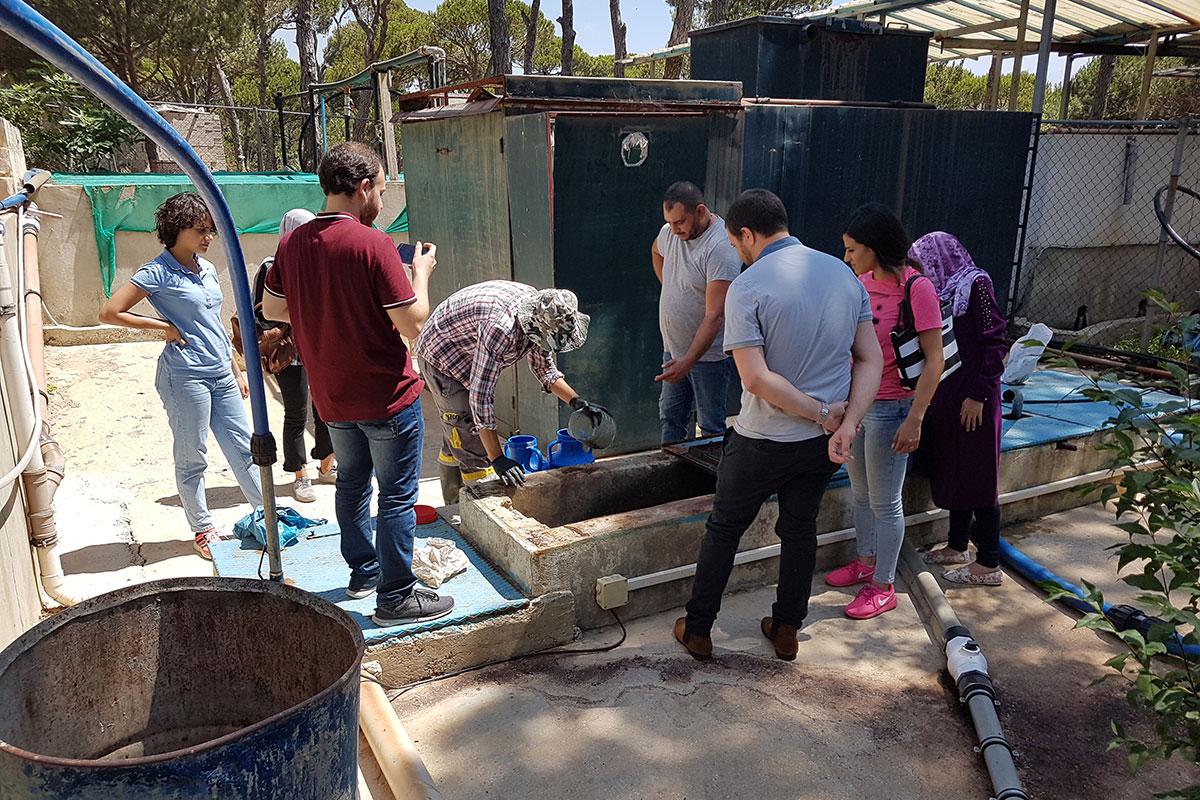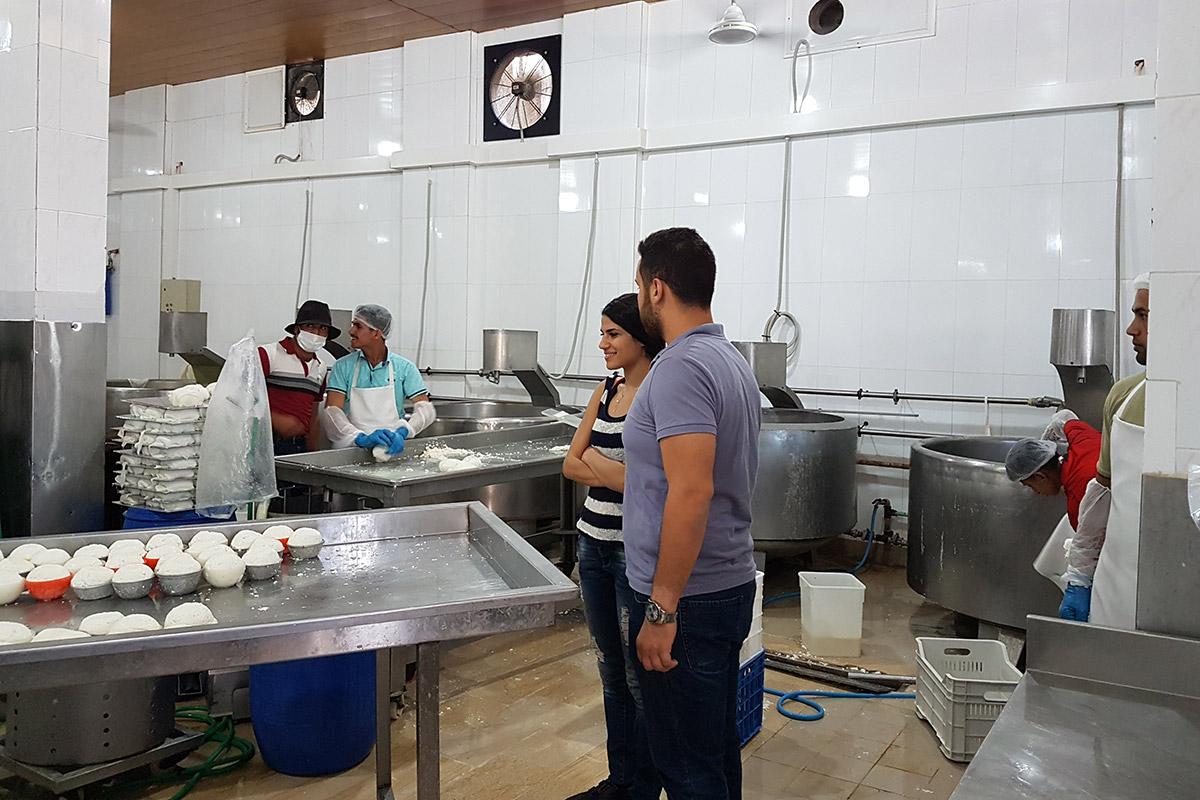LAU Implements First Phase of Sustainable Waste Management of the Litani Basin
Engineering faculty members make headway in tackling the ecological and health hazards posed by pollution of the Litani Basin.
The pollution of the Litani River Basin, a vital source of irrigation and water supply with a potential for generating hydroelectric power that extends from the Beqaa to South Lebanon, has for many years been an untreated environmental and health disaster.
Recognizing the urgent need to reach a sustainable solution in managing the organic industrial waste contaminating the basin, LAU has been collaborating with the Litani River Authority to advance the use of anaerobic digestion of industrial wastewater discharge, and has now fully implemented the first phase of the three-phase project.
Anaerobic digestion is an innovative and effective technology for the biodegradation of organic waste whose by-product – methane gas, a cleaner fossil fuel – provides a much-needed alternative source of energy.
Spearheaded by LAU’s Associate Professor Mahmoud Wazne, who had obtained a PEER research grant from the US Agency for International Development (USAID) for his proposal, the project will help the Litani River Authority provide clean water to residents of the Beqaa valley, and eventually Beirut, and relieve mainly poor communities in the region from water shortages and waterborne diseases.
“In this initial phase,” explained Dr. Wazne, “our team of LAU graduate students and industrialists collected and analyzed the organic materials of various samples from food factories to test the effectiveness of the treatment on each plant individually and collectively through mono digestion (single substrate) and co-digestion (combined substrates). We succeeded in improving the quality of the product and will be publishing our findings.”
The second phase, he added, “will be devoted to improving the treatment method based on a newly developed integrated bio-electrochemical reactor technology, in cooperation with Washington State University.” Ultimately, the project will raise “public awareness about anaerobic digestion and train young researchers on this sustainable treatment option.”
Dr. Wazne presented his findings and demonstrated anaerobic digestion for industrial organic wastewater to the Litani River Authority, Lebanese and American experts, and industries from the upper Litani Basin in the first of a series of workshops sponsored by USAID.
Speakers at the online workshop, in addition to Dr. Wazne, included Dean of the School of Engineering Lina Karam, Chairman and General Director of the Litani River Authority Sami Alaweih and LAU Associate Professor of Civil Engineering Mustapha Harb.
The workshop covered the fundamentals and importance of anaerobic digestion in the production of biogas, a mixture of gases including methane, to show that not only is this method cost-effective and eco-friendly but can be a viable source of electric power.
Praising the cooperation with local and international partners – primarily LAU – and recognizing the magnitude of the problem, Dr. Alawieh said that the Litani River Authority had come to an agreement with hundreds of factories to observe environmental standards, but only 90 of them had complied by installing treatment facilities with uncertain results. In his view, this confirms the need for a unified opinion on the wastewater treatment mechanism to be used.
In order to establish urgent dialogue between all parties concerned, noted Dr. Wazne, the university has made headway with the research “despite all challenges, particularly the pressing economic crisis in Lebanon.” He also highlighted the resilience of the research team and the strong support provided by the Department of Civil Engineering.
In parallel with this project, LAU’s Dr. Harb is conducting a study on advancing innovative and sustainable wastewater treatment technologies for improved water reuse practices in Lebanon and across the Mediterranean basin, with funding from the Partnership for Research and Innovation in the Mediterranean Area (PRIMA) under the European Union’s Horizon 2020 Program.
Dean Karam thanked USAID for providing funding in support of this impactful project. “We are very proud to have such life-changing work being pursued under the supervision of Dr. Wazne in collaboration with talented students and researchers in our School of Engineering with the aim to provide much-needed clean water to vulnerable communities in Lebanon,” she said.
“This project also contributes to the United Nations’ vital Sustainable Development Goals,” she added, “including Good Health and Well-Being (SDG 3), Clean Water and Sanitation (SDG 6), Affordable and Clean Energy (SDG 7), Sustainable Cities and Communities (SDG 11), and Life Underwater (SDG 14).”


